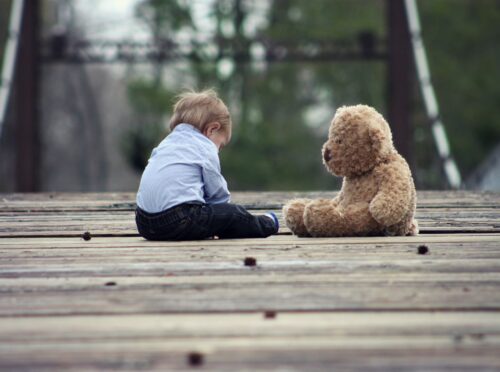Last Updated on December 11, 2022 by HodgePodgeDays
Being in an abusive relationship can be a scary and stressful experience. Unfortunately, the challenges don’t end when you decide to leave. Leaving an abusive partner can be even more difficult when children are involved, as you now must take extra measures to ensure their safety and well-being. It’s important to be proactive in creating a safe environment for your children before, during, and after leaving an abusive relationship. This guide will provide you with the necessary steps to protect your children from further harm and to help them recover from the emotional trauma of the abuse. With the right strategies, you can ensure that your children are safe and secure and that they have the support they need to heal.

Get Professional Help
If you’re planning to leave your abusive partner, the first thing you should do is seek out a non-molestation order. A non-molestation order is a court document that prohibits your abusive partner from causing you and your children harm. However, this doesn’t only apply to physical harm; it also applies to threats to inflict harm, harassment, intimidation, and abuse, including psychological and financial. When you first consider getting a non-molestation order, you may find it overwhelming as the legal system can be frightening. However, by speaking to solicitors that specialise in these orders and by following this guide, you can get all the expert advice you need to protect yourself and your family.
Create A Support Network
After you get a non-molestation order, it’s time to create a support network for you and your children. Start by telling your loved ones about the abuse. You don’t have to do it all at once, but it’s important that you tell trusted family members and friends about the abuse as soon as possible. Telling others about the abuse is a great way to get outside support, but it is also a great way to protect yourself and your children from the abusive partner. You can also reach out to support groups in your area. Speaking with other people who have gone through similar situations can help you cope with your emotions and feel less isolated.
Help Your Child Cope With Their Emotions
Kids often feel a range of emotions after experiencing abuse, including fear, anxiety, and shame. It’s important that you talk to your kids about the abuse and allow them to express their emotions. You can start the conversation by asking your child how they feel and listening to their response. You should also consider reaching out to mental health services to help your children work through their emotions in a healthy way.
Keep A Record Of Any Abuse Or Harassment
After you leave the abusive relationship, it’s important to keep a record of any abuse or harassment that happened before you left as well as any subsequent incidents. You can do this by keeping a journal or writing down any abusive or harassing incidents that happen. Keeping a journal or documenting abuse can provide you with evidence that you can use in the future. If your abusive partner continues to harass you or your children after you leave, you can use these records to pursue further legal action.
This is a contributed post.
